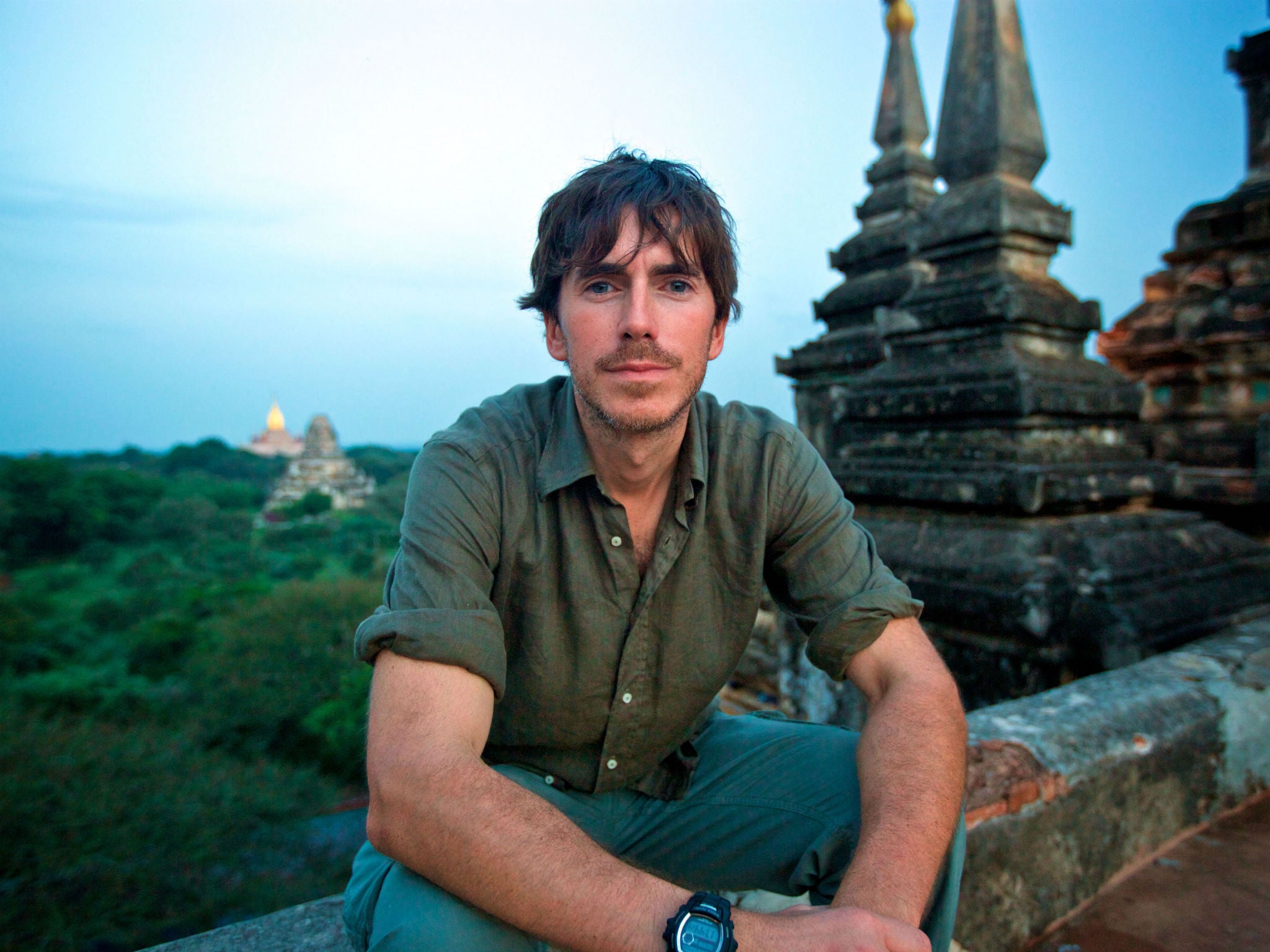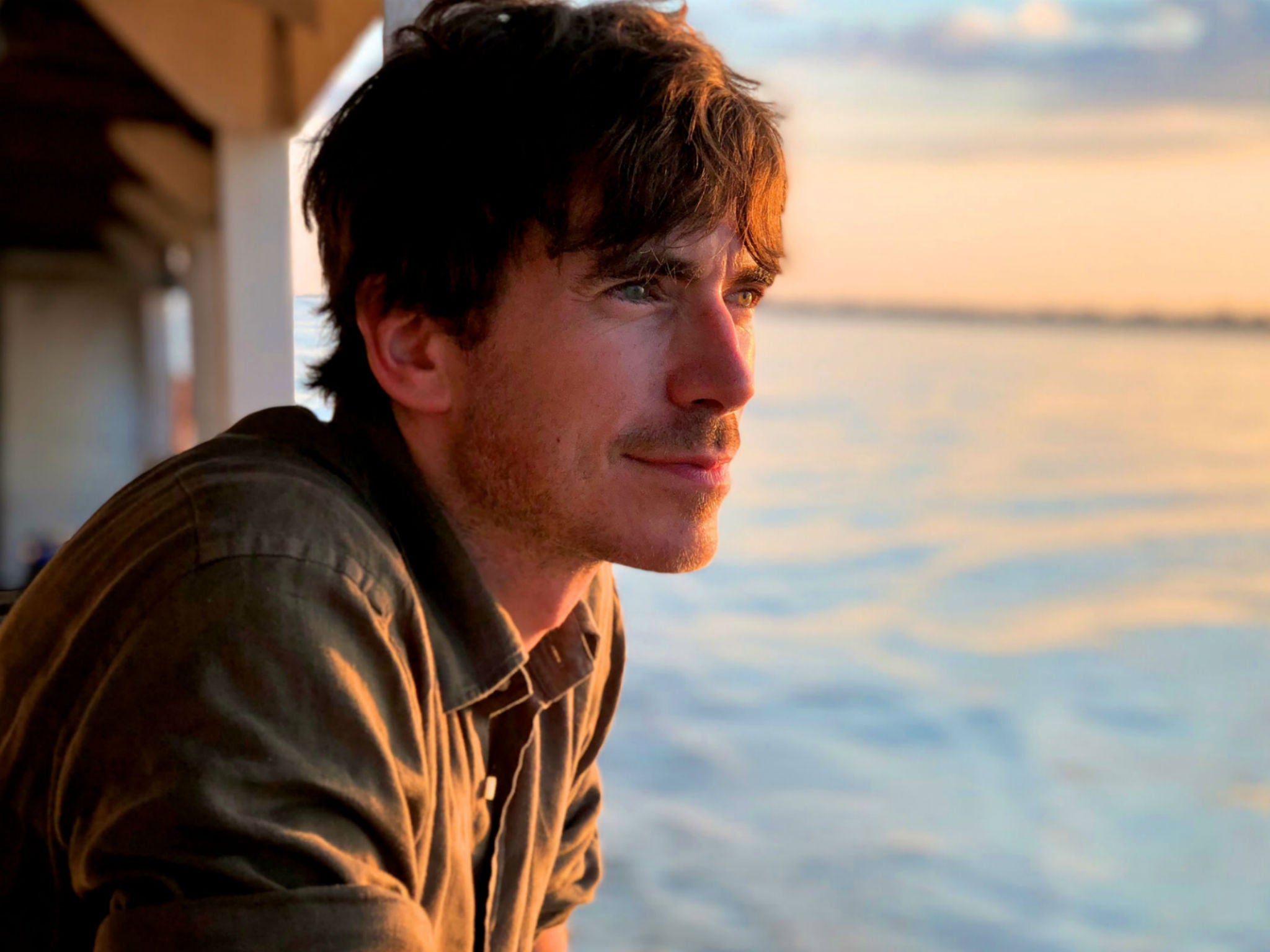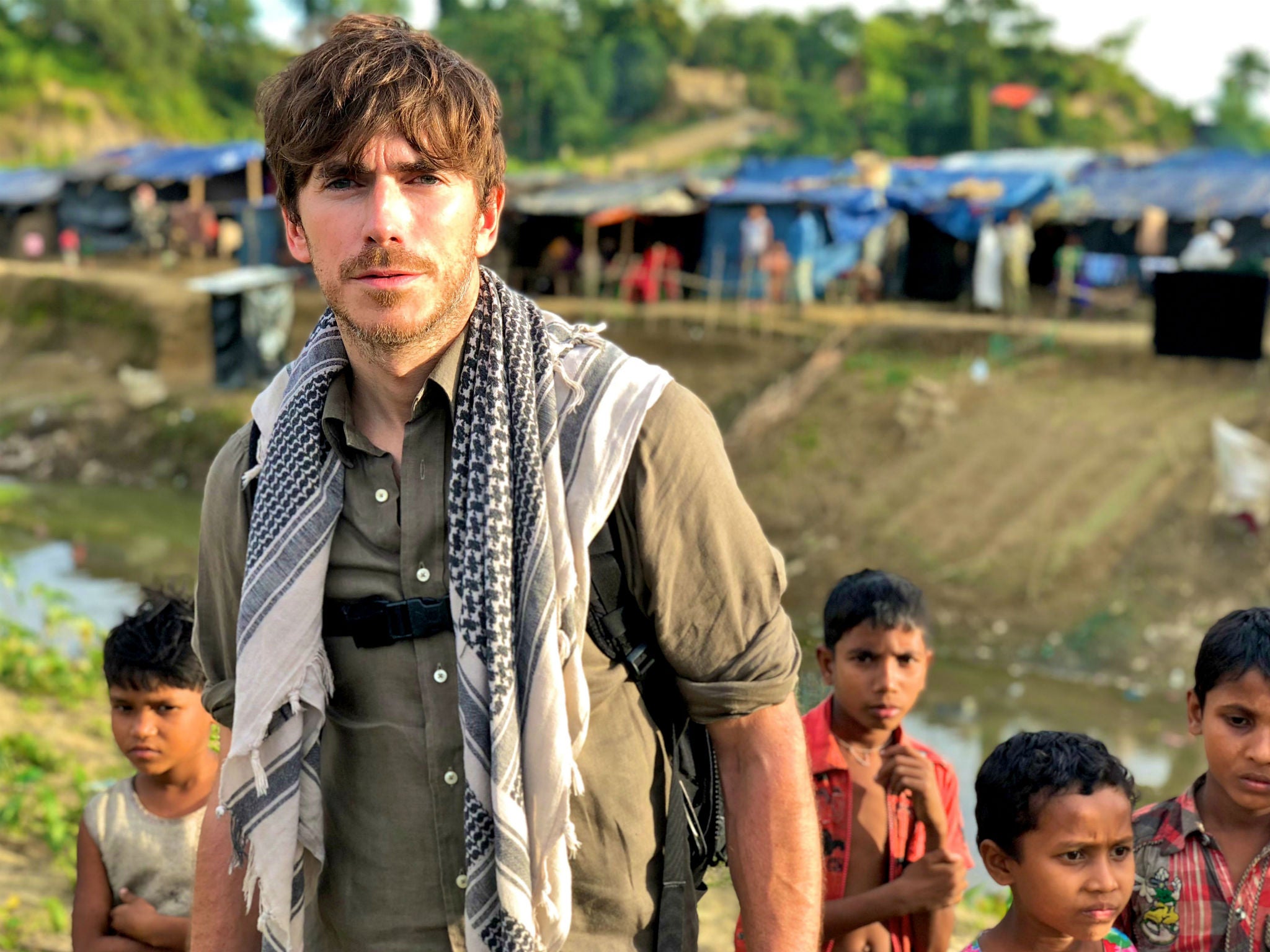Simon Reeve interview: 'There is much more light in the world than darkness'
The fearless TV presenter has made a career out of visiting the world’s most dangerous destinations, but his job still fills him with joy

Your support helps us to tell the story
From reproductive rights to climate change to Big Tech, The Independent is on the ground when the story is developing. Whether it's investigating the financials of Elon Musk's pro-Trump PAC or producing our latest documentary, 'The A Word', which shines a light on the American women fighting for reproductive rights, we know how important it is to parse out the facts from the messaging.
At such a critical moment in US history, we need reporters on the ground. Your donation allows us to keep sending journalists to speak to both sides of the story.
The Independent is trusted by Americans across the entire political spectrum. And unlike many other quality news outlets, we choose not to lock Americans out of our reporting and analysis with paywalls. We believe quality journalism should be available to everyone, paid for by those who can afford it.
Your support makes all the difference.For Simon Reeve, an average day at the office might include any of the following activities: witnessing trench warfare in the Caucasus, going into the world’s most dangerous jail in Honduras, being pursued around a poisoned sea by a gigantic, amorous camel, being electrocuted in a war zone, hunting with the bushmen of the Kalahari, being cornered by a pack of hungry cheetahs, tiptoeing through minefields, being blackmailed and abandoned by drivers in an Ebola zone, and eating some of the strangest foods known to humankind, from zebu penis soup to barbequed rat.
This is a man who, while others flee from danger, screaming for their lives, runs towards it quite happily. It makes you wonder just how high his travel insurance premiums are.
In person, Reeve exhibits the same infectious passion he displays on screen. He remains irresistibly enthused by this “enormous world of seven billion stories and magnificent sights to see”.
It is easy to imagine that his sheer lust for life has got him through many of these hair-raising incidents.

He begins by recalling his scariest moment yet. “In Somalia once, I was being protected by a group of local mercenaries we had hired. The only problem was that they were off their heads on khat, the local drug of choice.
“We were in a ‘technical’, which is a flatbed pickup truck with an anti-aircraft gun on the back. As we were driving through a bombed-out part of Mogadishu, we came across another gang at a crossroads. They turned their guns on us, and we turned our guns on them. The guns were locked and loaded and everyone was screaming at each other.”
So what protection did Reeve have at that moment? “I had a flak jacket and a helmet on. But I was staring down the barrel of an anti-aircraft gun – a whopper of a weapon – and my little flak jacket was not going to stop those large calibre rounds. It was a completely terrifying experience.
“I had absolutely no idea how it was going to play out, and there was nothing I could do to affect the outcome. It ended as the screams died down and were replaced by surly snarling. Eventually, the other gang drove off first. But it could have ended horrifically.”
Reeve, who is married to Anya, a camerawoman, and has a young son with her, reflects on the aftershock of this immensely frightening incident. “I didn’t really talk about it afterwards, but I’ve had some waking-in-the-night moments about it since. It is scary enough for my palms to get ever so slightly sweaty now as we talk about it. You look back and can’t believe that moments like that happened.”
But, of course, moments like that will inevitably happen if you put yourself in harm’s way with the frequency that Reeve does. For the past decade and a half, he has been risking his life reporting from such seriously dangerous places as Honduras, the Democratic Republic of the Congo, Colombia, Somaliland and Transnistria (where he was arrested by the FSB on suspicion of espionage).
He now adds to that impressive list with Myanmar (Burma), for an absorbing, and often disturbing, two-part BBC2 documentary about that troubled nation (more of which anon). However, the upside is that in the course of his work, the 45-year-old journalist has shed light on some of the most notoriously shadowy parts of the world.

Reeve was not born into privilege. He grew up in “tropical Acton” in west London. He did not get on a plane till he was an adult, and his idea of adventure as a child was limited to riding his BMX and his grandmother’s magical mystery tours that took him to “exotic, unknown places like Hounslow”.
He left school without any qualifications and did a series of unglamorous jobs before the then editor of The Sunday Times, Andrew Neil, promoted him from the post room to the news room.
He developed into an expert on terrorism and was way ahead of the curve when, in 1998, he wrote the first ever comprehensive book about al-Qaeda, The New Jackals.
After achieving prominence as a TV analyst of terrorism post 9/11, Reeve set the tone for his subsequent work by making his presenting debut with the BBC series Holidays in the Danger Zone in 2003. He undertook perilous trips across Tajikistan, Kyrgyzstan and Kazakhstan, leading to the show’s subtitle: “Meet the Stans”.
Now Reeve is one of our most popular TV travel presenters, whose journeys have helped to enlighten viewers about places most of us would never even dream of visiting.
Perhaps unexpectedly, he has emerged with a very positive view of the world and a surprising belief in its inherent safety. “I could dwell on the danger, or I could dwell on the joy of doing this.
“I choose the latter, because I do think that it’s a much safer world than people fear. Of course, part of my gig is sometimes to go to places that are riskier than normal, but the world is still such a safe and welcoming place.”
For all that, what does his family think about his risky adventures? The presenter, who is touring the UK this autumn with a new live show, An Audience with Simon Reeve, asserts that his family are “fairly calm about my travels. I’m very hot on basic but vital things like wearing seat belts. In a pompous way, the real value to us being there is telling other people about it. My family realise that.”
The main thing the presenter wants to tell people about in Burma with Simon Reeve is the suffering being inflicted on the Rohingya Muslim minority in the country.
The bigotry is being fuelled by a militant sect of monks led by a firebrand preacher known as the “Buddhist bin Laden”. As a result, 700,000 Rohingya have been driven to leave for Bangladesh, creating the biggest refugee camp in the world at Kutupalong.
Some people are calling this a genocide and are comparing it to ethnic cleansing and apartheid. Many are also amazed that Aung San Suu Kyi, a Nobel Peace Prize winner dubbed “Asia’s Nelson Mandela”, appears to have done little to stop this humanitarian crisis.
The presenter confesses that, “Nothing can quite prepare you for the refugee camp at Kutupalong. Witnessing that biblical exodus, the like of which we have not seen since Rwanda, you can’t help but be moved by the suffering. I must admit, when I was there, I cried.”
Reeve hopes that his series on Myanmar may open a few eyes as to what’s really going on in that country. “I very strongly feel that the Rohingya crisis must not fade from people’s minds. As a planet, we cannot tolerate a situation where hundreds of thousands of people are being left to fester in underfunded refugee camps.”
The presenter goes on to reflect about whether series such as Burma with Simon Reeve can ever actually change people’s minds. “They can cause a ripple on a pond.
“I don’t harbour any illusions that dramatic change can happen as the result of the TV documentary. However, there is enormous value in people learning a little more about what’s happening to our kith and kin.”
So after 15 years of filming in some of the most dangerous spots in the world, what does Reeve hope that his audience might take away from his work? “That people everywhere are good and bad in the same proportions we would expect here.
“People everywhere are greedy and desperate and funny and loving and caring and hospitable and experience all manner of emotions. Life is certainly getting better for us collectively as a species, even as the planet we live on is being ruined by consumerism and greed.”
He continues “if you travel intelligently with your eyes open and give a damn about where you are, you can be a positive force for good and help people in other parts of the world. You can help protect and preserve iconic creatures and areas by your presence.
“We are living in a golden age of travel. Travel is still the best way of racking up incredible memories and experiences. I hope people see what we do on TV and realise that they don’t have to avoid issues when they’re on holiday. They can take an interest and ask questions and have a richer experience as a result.”
Reeve closes by declaring that his experiences in some of the more terrifying corners of the globe have left him a member of the “Human Being Fan Club”.
“I’m very much in favour of people not spending their lives on their knees, fearing the darkness. There is much more light in the world than darkness. I’ve got a lot of love for us.
“The journeys I have been on have not made me misanthropic. If there is any message from these programmes, it’s that we should try to learn about what else is out there and what our brothers and sisters in other parts of the planet are going through. We should try to get the most we can out of life and travel – because life’s bloody short, frankly.”
‘Burma with Simon Reeve’ starts on BBC2, 13 May
Join our commenting forum
Join thought-provoking conversations, follow other Independent readers and see their replies
Comments